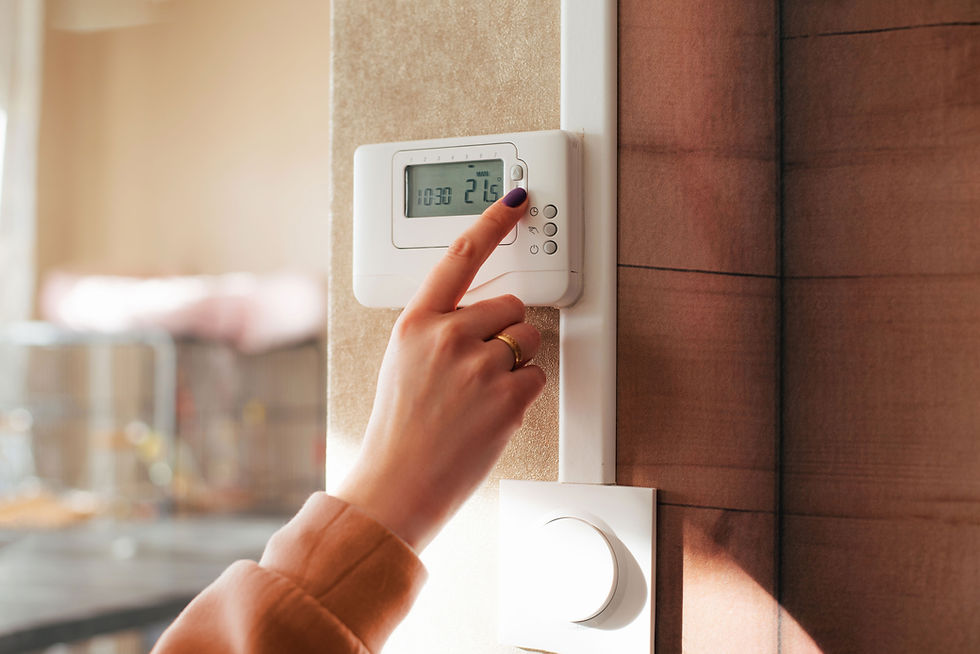Understanding MERV Filters: Why They Matter for Your HVAC System
- Clean Air HVAC Care
- Feb 19
- 2 min read
When it comes to maintaining a healthy indoor environment, the importance of high-quality air filtration cannot be overstated. One of the most popular choices among homeowners is MERV filters. But what exactly are MERV filters, and why should you consider using them in your HVAC system?
Let’s dive into the details!

What is a MERV Filter?
MERV stands for Minimum Efficiency Reporting Value. It’s a standard rating system that measures the effectiveness of air filters in capturing particles of different sizes. MERV ratings range from 1 to 16, with higher numbers indicating a greater ability to filter out smaller particles.
Here’s a quick breakdown:
MERV 1-4: Basic filters that capture large particles like dust and pollen.
MERV 5-8: Moderate efficiency, capturing smaller particles, including mold spores and pet dander.
MERV 9-12: High efficiency, effective against smaller allergens and smoke particles.
MERV 13-16: Very high efficiency, capable of capturing bacteria, viruses, and even some industrial dust.
Why Use MERV Filters?
Improved Indoor Air Quality (IAQ)
MERV filters are designed to trap a wide range of airborne pollutants, including dust, pollen, pet dander, and mold spores. By removing these contaminants from the air, MERV filters significantly improve indoor air quality, making your home a healthier place for you and your family.
Enhanced HVAC System Performance
High-quality MERV filters help your HVAC system run more efficiently. By capturing dust and debris before they enter the system, these filters reduce the amount of buildup on internal components like coils and fans. This means your system doesn’t have to work as hard, leading to longer equipment life and potentially lower energy bills.
Allergen Reduction
For those with allergies or asthma, using a MERV filter can make a noticeable difference. By trapping smaller allergens, MERV filters can help reduce symptoms and improve overall respiratory health, providing relief for sensitive individuals.
Reduced Odors
MERV filters also help minimize unpleasant odors by capturing particles that contribute to bad smells, such as pet odors and smoke. This leads to a fresher indoor environment.
Better Humidity Control
By keeping dust and allergens out of your HVAC system, MERV filters can also contribute to better humidity control. This is especially important in Utah, where humidity levels can fluctuate, leading to issues like mold growth or dry air.
Choosing the Right MERV Filter
When selecting a MERV filter, consider the following:
Compatibility: Ensure that the filter fits your HVAC system properly. A filter that is too tight or too loose can reduce efficiency.
Balance: While higher MERV ratings capture more particles, they can also restrict airflow if your HVAC system isn’t designed to handle them. It’s essential to find a balance between filtration efficiency and system performance. For many residential systems, a MERV rating of 8-12 is often a good choice.

Conclusion
Incorporating MERV filters into your HVAC system is a smart way to enhance indoor air quality, improve system performance, and create a healthier living environment. If you’re interested in upgrading your filters or have questions about the best options for your home, don’t hesitate to reach out.
A well-maintained HVAC system with the right filtration can make all the difference in your comfort and health, if you're wondering what filter would work best with your specific system give us a call!
_edited_edited.png)


